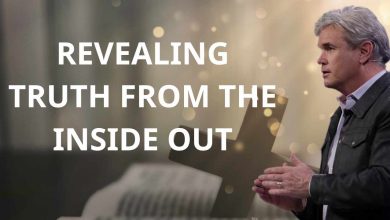What Goes Up – Part 1 (Hebrews 13:10-16)
Title: What Goes Up – Part 1 | Jack Hibbs | Hebrews 13:10–16
Hebrews 13:10-16 says this:
Let’s pray.
Father, we thank You for the truth of Your Word and for the clear instruction it brings to our lives. Thank You for being our great high priest, Jesus—our intercessor, our redeemer, and the only way to salvation. Lord, as we walk through this portion of Scripture today, I pray that You would awaken our understanding. Help us see what You’re calling us to in this hour, especially when the world is growing darker and more chaotic. Help us be a light. Help us live out the Word. And Holy Spirit, be our teacher right now, in Jesus’ name. Amen.
Now church, as we dive into these verses, there’s something powerful I want to draw your attention to. Verse 10 says:
We—believers in Jesus Christ—have a spiritual altar. But this altar is not like the one in the tabernacle. It’s not something you can see or touch. It’s not the kind the Levitical priests served at. In fact, the passage says clearly that those who serve at the tabernacle—those still clinging to the old covenant—have no right to eat from it. This means they have no share in what we now have in Christ.
Here’s the truth: When you come to Christ, you’re not just entering into a new belief system—you’re entering into a relationship that gives you access to a new altar, a new covenant, a new way of life. It’s not about religion anymore. It’s about redemption.
And what’s fascinating is how this passage connects the Old Testament sacrifices with what Jesus accomplished for us.
In verse 11, we see that under the law, the high priest would carry the blood of animals into the holy place, but the bodies were burned outside the camp. Why? Because once the blood was used to make atonement, the body—the flesh—was considered defiled. Unclean. So they took it outside the camp and burned it.
Now look at what verse 12 says:
Jesus was taken outside the city—outside the gate of Jerusalem—just like those animal sacrifices. That was no coincidence. He was fulfilling the very picture God had painted through the Old Testament sacrifices. He bore our shame. He was rejected, crucified as an outcast, so that through His suffering and shed blood, we might be made holy.
So what does that mean for us?
Verse 13 gives the answer:
Church, that’s a call to action.
If Jesus was willing to suffer outside the camp—rejected by the world, mocked, scorned—then we should be willing to follow Him there, even if it costs us something. Even if it means rejection. Even if it means we’re misunderstood. The world may despise us. The culture may turn against us. But we’re not here to please the world—we’re here to follow Jesus.
And why?
Because verse 14 reminds us:
This world is not our home. We’re not supposed to get too comfortable here. Our citizenship is in heaven. We’re just passing through. And because of that, our priorities must reflect eternity.
So what do we do in the meantime?
Verse 15 tells us:
Your praise—your thanksgiving—is a sacrifice. And it matters to God. Especially when it costs you something. When you praise Him in the storm. When you worship even in weakness. That is precious in His sight.
And finally, verse 16:
What goes up—your praise, your worship, your obedience—is a sacrifice God honors. So don’t stop. Keep doing good. Keep sharing. Keep shining the light of Christ, because these are the things that please our Father in heaven.
